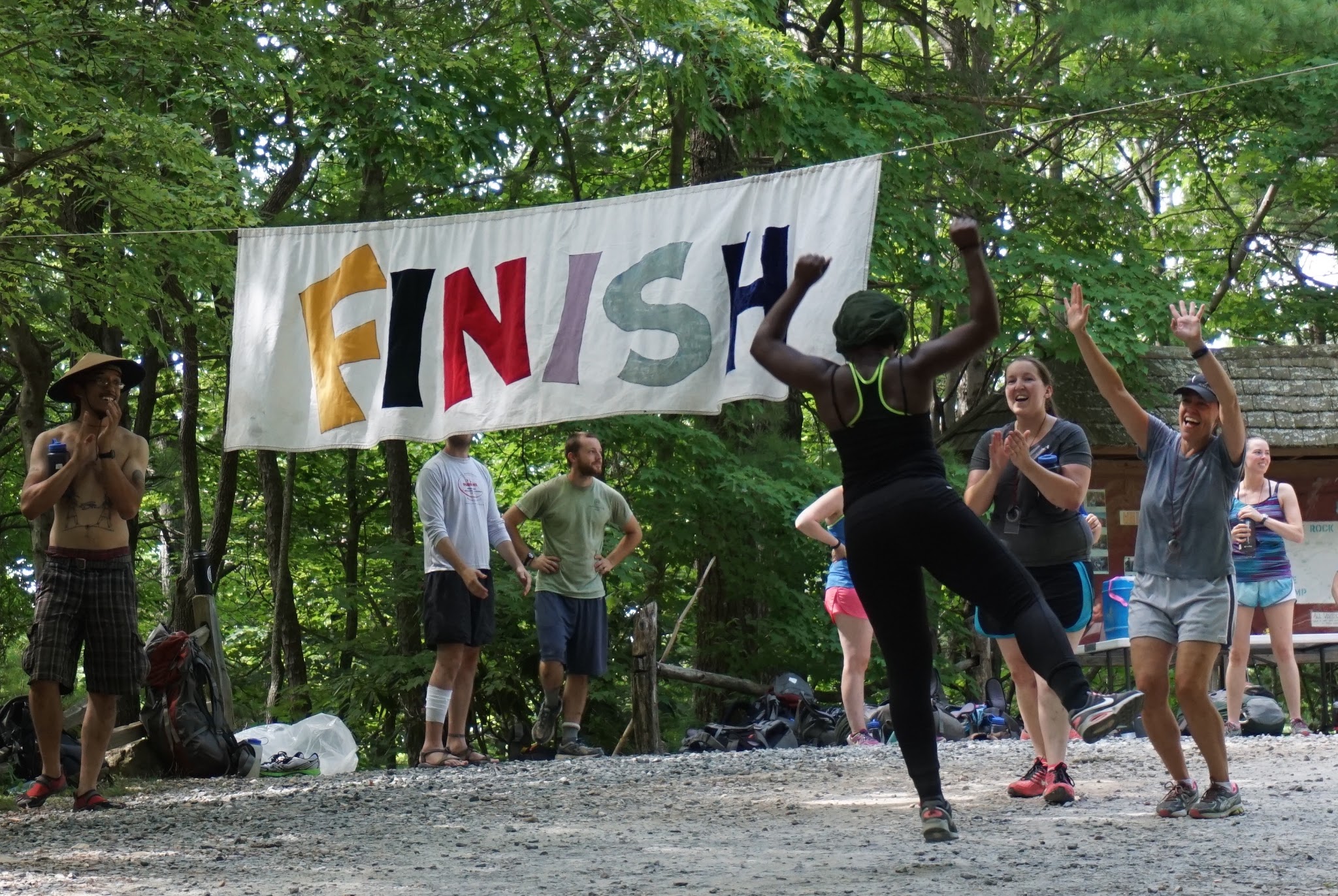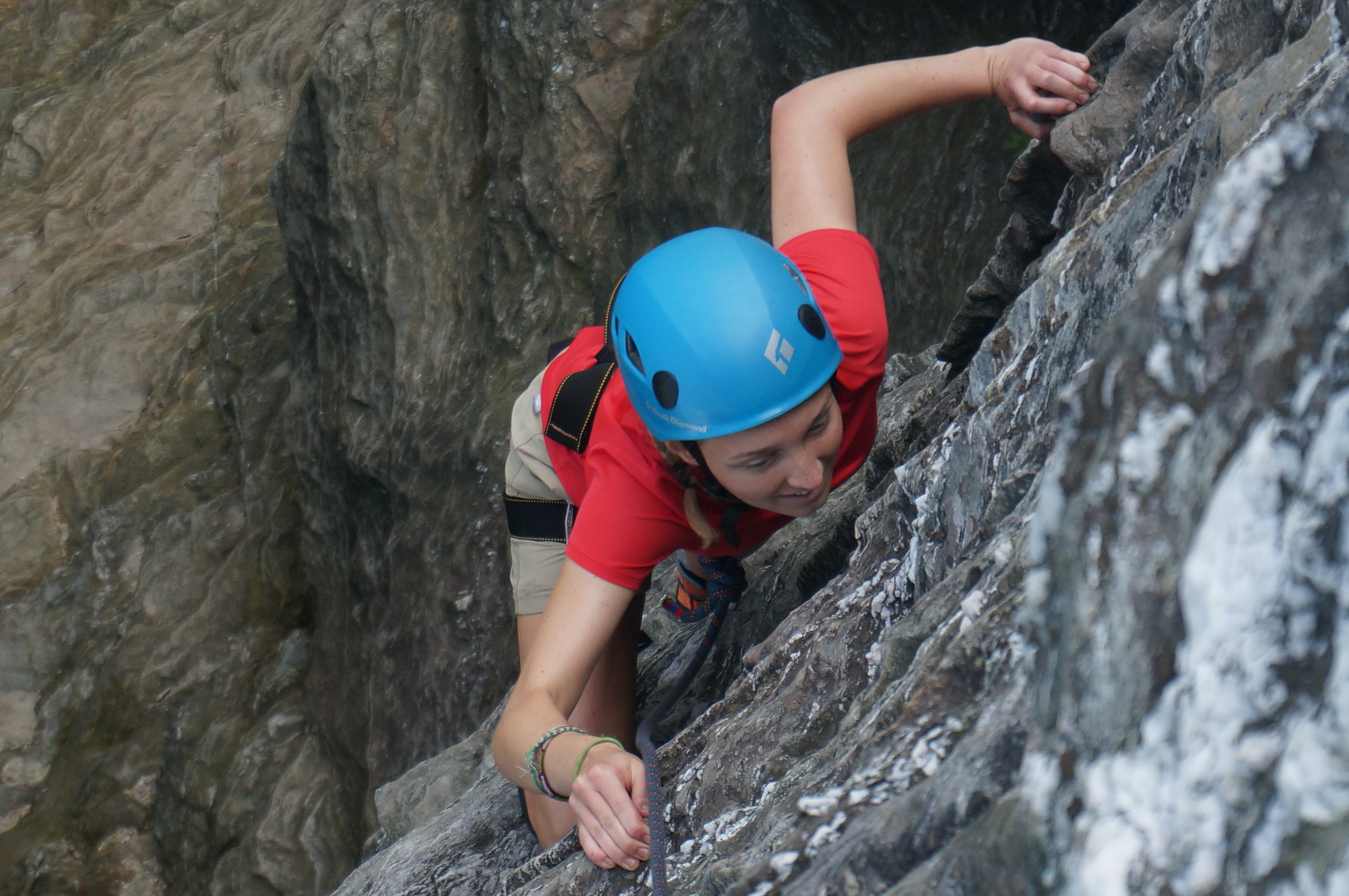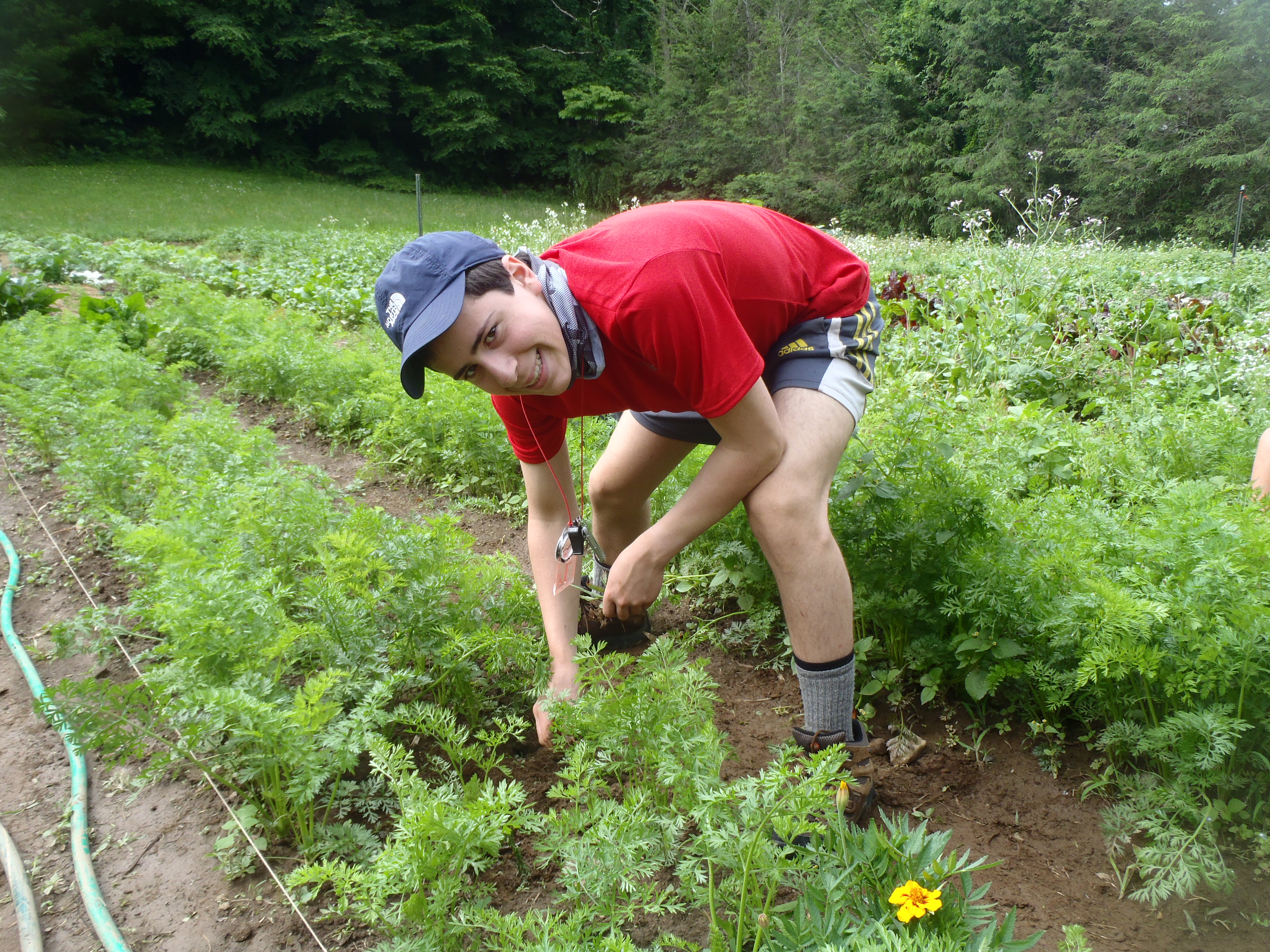Blue Ridge - Backpack & Rock Climb [14 Days | Age 14-16]
Participants will journey deep into the mountains of Western North Carolina on this backpacking and rock climbing expedition. These mountains are some of the oldest in the world and home to hundreds of waterfalls, over a million acres of national forest, park and public land, unique rock formations and the highest peaks in the Eastern United States.
With a focus on the practice of safety, your lessons will start with the basics, such as working with ropes and learning to tie knots used for climbing and rappelling. You will progress to:
- Top-Rope climbing or “top-roping”: A style of rock climbing in which a rope runs from a belayer at the foot of a route through one or more carabineers connected to an anchor system at the top of the route and back down to the climber. The rope is attached to the climber by means of a harness.
- Rappelling: A means of controlled descent to lower yourself down a cliff, rock face or some other high location.
You may progress to:
- Multi-Pitch Climbing: The ascent of climbing routes with one or more stops at a belay station. Each section of climbing between stops at the belay stations is called a pitch. The lead climber ascends the pitch, placing gear and stopping to anchor themselves to the belay station. Your multi-pitch climb may have up to five pitches and may be graded 5.4 to 5.9. Depending on weather and group dynamics, your crew may have an opportunity to experience a high ropes course.
FINAL CHALLENGE EVENT
At the end of your course, you will participate in a personal challenge event. This is a great time to see how much your physical fitness and endurance have improved since you began your course. This event will be a running activity. It is not a race. Your instructors set a certain route for your crew and you complete the route at a level that will challenge you the most.

SERVICE
Service will be a continuous theme throughout your course. The ethic of service is practiced through Leave No Trace camping techniques, reaching out with compassion to your fellow crewmates and working together as a team to overcome the challenges of Outward Bound.
On your course, the ethic of service is practiced in greater depth and often includes a service project. Projects range from campsite restoration and maintaining hiking trails in the wilderness to supporting the surrounding communities by assisting families in need, sharing outdoor activities with disadvantaged children or helping in local wildlife restoration centers. Service projects typically last 6-8 hours. Alert your instructor AT COURSE START if you need written verification or documentation of service project hours.
SOLO
Solo typically occurs more than halfway through your course and may last between 36-48 hours. Your instructors will assign each participant an individual campsite within a designated area. Your instructors will teach you procedures to follow during solo and monitor you during this experience. You will know the location of your instructors’ campsite should you need to contact them; otherwise it is essential that you remain in your designated area. If your course has an overnight solo you will have your clothing, food and water. In addition, you will have Outward Bound issued gear: including rain gear, shelter, sleeping bag, compass and whistle. You will not be physically active during solo, as solo is a time for rest, recharge and reflection. Solo is also a good time to write in the journals we provide. If you have questions or concerns, please discuss with your Student Services Representative or your instructors.
During your course, you will be spending the majority of your time backpacking. During this component, you learn safety precautions for backcountry foot travel, how to find campsites, how to navigate terrain as well as how to use a map and compass. Equally important will be time spent learning conflict resolution, communication styles, leadership and team building. After practicing these skills, your instructors will step back and let you and your crew work together to collectively navigate through the wilderness.
Since your crew’s navigation depends on individual and group decision making, your crew could make some navigational errors along the way. You will be carrying a backpack that may weigh 50+ pounds. The weight is manageable, as the packs (when fitted correctly) will rest on your hips not on your back or shoulders. You may end up hiking long hours to reach your destination. You may expedition three miles uphill one day and eight miles over varied terrain the next day. Therefore, we want to remind you that physical preparation is very important!
BACKPACKING
Specifics: During your course, you will be backpacking approximately six to eight days.
ROCK CLIMBING
Specifics: Weather permitting, you may spend up to three days rock climbing and rappelling.


